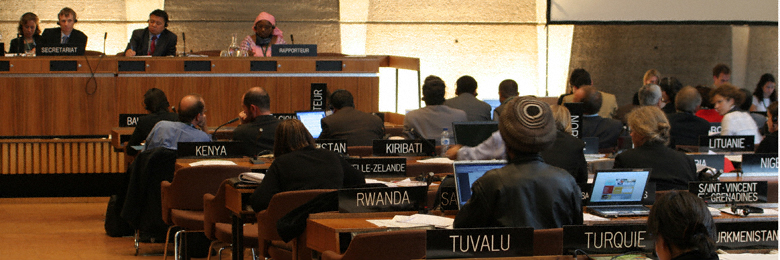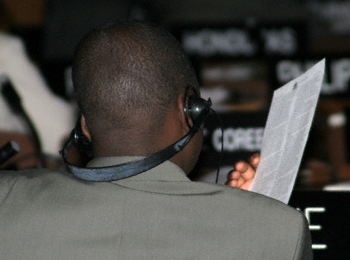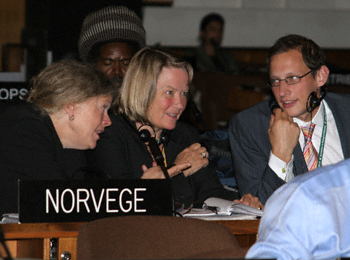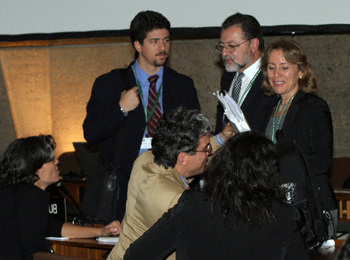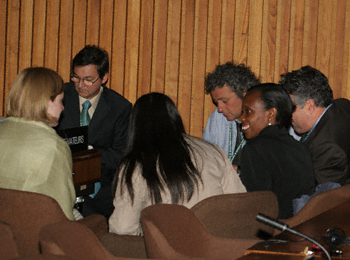PLENARY |
Options and Draft Strategy for Resource Mobilization |
| |
|
|
|
|
| |
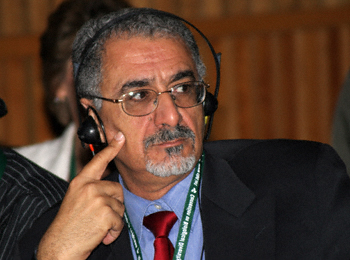 |
|
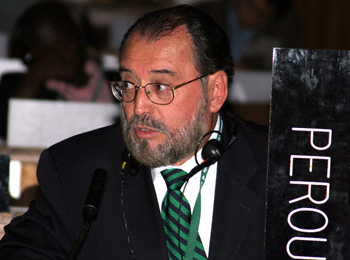 |
|
| |
Djamel Echirk, Algeria, recommended the use of other multilateral and regional funds besides the GEF. |
|
Alberto Paniagua, Peru, drew attention to the successful experience with environment funds in the Latin America and the Caribbean region. |
|
| |
|
|
|
|
|
|
| |
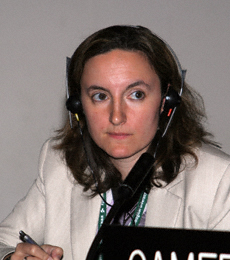 |
|
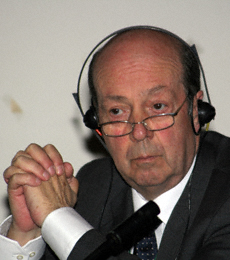 |
|
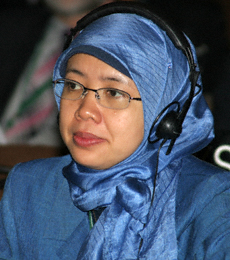 |
|
| |
Nathalie Dault, Canada, called attention to national and subnational initiatives to mobilize financial resources. |
|
Fernando Pérez, Chile. |
|
Nurmayanti, Indonesia, encouraged development of incentive measures in accordance with domestic needs. |
|
| |
|
|
|
|
| |
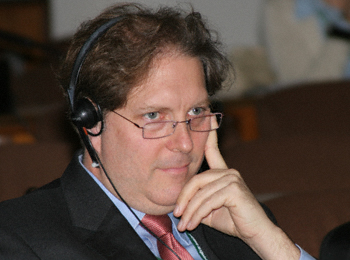 |
|
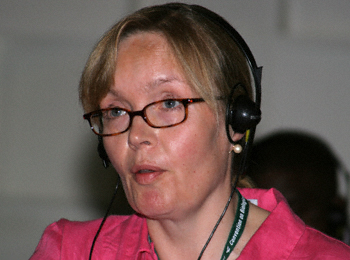 |
|
| |
Joshua Bishop, IUCN, noted an IUCN-UNEP initiative exploring opportunities for international payments for ecosystem services. |
|
Joy Hyvarinen, BirdLife International, lamented that donors often focus on short-term projects rather than long-term sustainability. |
|
| |
|
|
|
|
|
|
| |
|
|
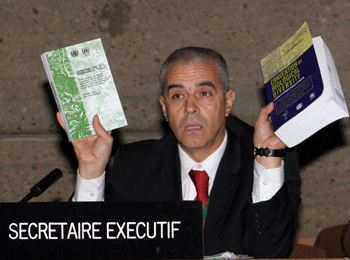 |
|
|
|
| |
|
|
Ahmed Djoghlaf, CBD Executive Secretary, pointed out that only US$ 1 million is available through the GEF to each eligible party over the next four years for implementing some 1,800 CBD decisions. |
|
|
|
|
Mechanisms for Implementation of the Convention |
| |
|
|
|
|
|
|
| |
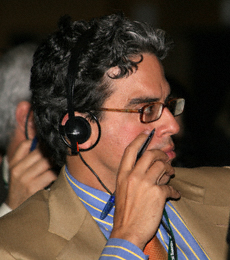 |
|
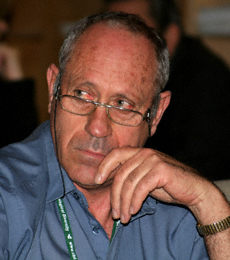 |
|
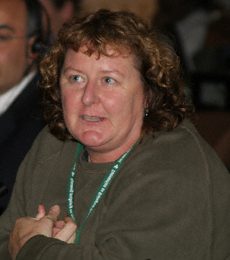 |
|
| |
Fernando Coimbra, Brazil, proposed recommendations to support the implementation of NBSAPs and the 2010 targets. |
|
Gert Willemse, South Africa, emphasized the need for human and technological resources besides additional financial resources. |
|
Annemarie Watt, Australia, underscored the need to make the most of existing meetings rather than adding new workshops. |
|
| |
|
|
|
|
| |
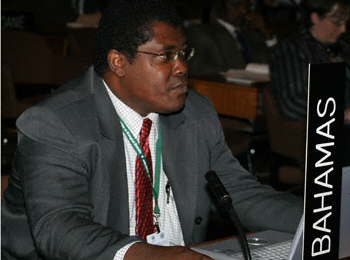 |
|
 |
|
| |
Ambassador Donald Cooper, Bahamas. |
|
Ugen Tenzin, Bhutan. |
|
| |
|
|
|
|
|
|
| |
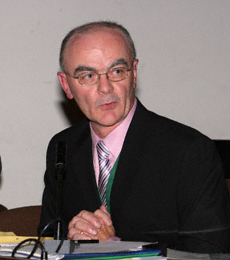 |
|
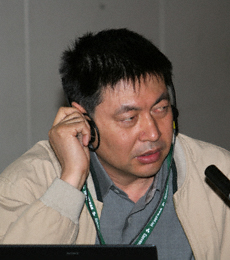 |
|
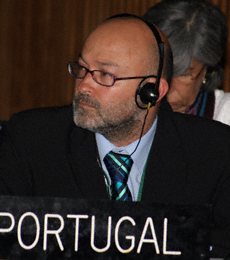 |
|
| |
Robert McLean, Canada, stated that the Executive Secretary can play a role in facilitating implementation. |
|
Dayuan Xue, China, called for national implementation mechanisms to be evaluated and country experiences shared. |
|
Pedro Ivo Arriegas, Portugal, on behalf of the EU, noted that the CBD Secretariat should not become an implementation body. |
|
| |
|
|
|
|
| |
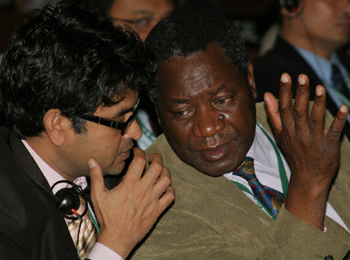 |
|
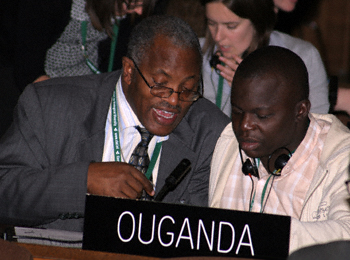 |
|
| |
From left to right, Ahmed Saleem, Maldives, and James Seyani, Malawi. |
|
From left to right, Rawson Piniel Yonazi, Tanzania, and Francis Ogwal, Uganda. |
|
|
Inputs to the Process of Revising the Strategic Plan Beyond 2010 |
| |
|
|
|
|
|
|
| |
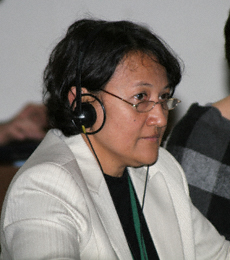 |
|
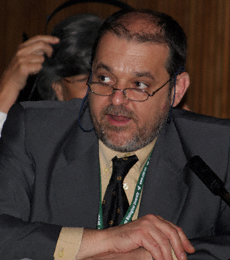 |
|
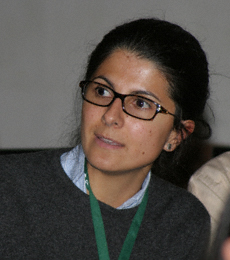 |
|
| |
Patama Domrongphol, Thailand, called for the inclusion of national biodiversity-related achievements into the revised plan. |
|
Mario Silva, Portugal, on behalf of the EU, called for GBO 3 to be ready before COP 10 so as to inform future WGRI meetings. |
|
Jimena Nieto, Colombia, disagreed that discussions on revising the Strategic Plan beyond 2010 are premature. |
|
|
Proposals for the Scope and Format of GBO 3 |
| |
|
|
|
|
|
|
| |
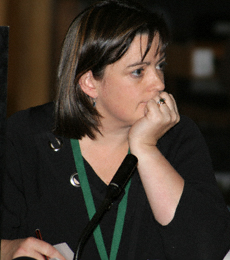 |
|
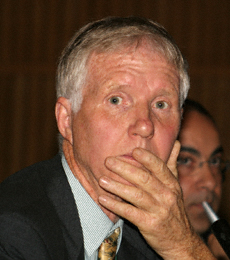 |
|
 |
|
| |
Nicola Scott, New Zealand (left) and Doug Laing, Australia (right), called for GBO 3 to be conducted with scientific rigor, rather than it solely becoming an advocacy tool. |
|
Peter Herkenrath, UNEP-WCMC, reported on current initiatives on harmonizing national reporting processes. |
|
|
Snapshots |
|
|


.gif)

























